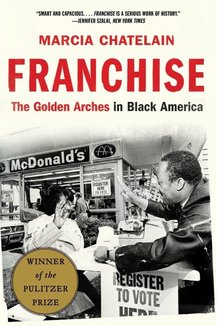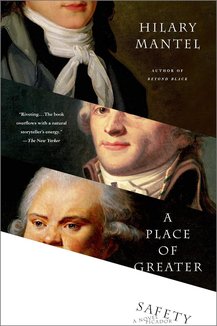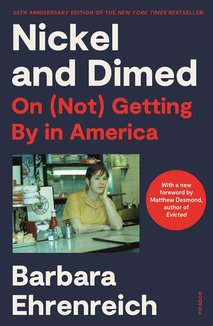Recommended Books

Franchise: The Golden Arches in Black America
Author:
Marcia Chatelain
ISBN 13:
978-1631498701
WINNER • 2021 PULITZER PRIZE IN HISTORY Winner • 2022 James Beard Foundation Book Award [Writing] The “stunning” (David W. Blight) untold history of how fast food became one of the greatest generators of black wealth in America. Just as The Color of Law provided a vital understanding of redlining and racial segregation, Marcia Chatelain’s Franchise investigates the complex interrelationship between black communities and America’s largest, most popular fast food chain. Taking us from the first McDonald’s drive-in in San Bernardino to the franchise on Florissant Avenue in Ferguson, Missouri, in the summer of 2014, Chatelain shows how fast food is a source of both power―economic and political―and despair for African Americans. As she contends, fast food is, more than ever before, a key battlefield in the fight for racial justice. 8 chapter openers

A Place of Greater Safety: A Novel
Author:
Hilary Mantel
ISBN 13:
978-0312426392
It is 1789, and three young provincials have come to Paris to make their way. Georges-Jacques Danton, an ambitious young lawyer, is energetic, pragmatic, debt-ridden--and hugely but erotically ugly. Maximilien Robespierre, also a lawyer, is slight, diligent, and terrified of violence. His dearest friend, Camille Desmoulins, is a conspirator and pamphleteer of genius. A charming gadfly, erratic and untrustworthy, bisexual and beautiful, Camille is obsessed by one woman and engaged to marry another, her daughter. In the swells of revolution, they each taste the addictive delights of power, and the price that must be paid for it.

Nickel and Dimed: On (Not) Getting By in America (20th Anniversary Edition)
Author:
Barbara Ehrenreich
ISBN 13:
978-1250808318
The New York Times bestselling work of undercover reportage from our sharpest and most original social critic, with a new foreword by Matthew Desmond, author of Evicted Millions of Americans work full time, year round, for poverty-level wages. In 1998, Barbara Ehrenreich decided to join them. She was inspired in part by the rhetoric surrounding welfare reform, which promised that a job―any job―can be the ticket to a better life. But how does anyone survive, let alone prosper, on $6 an hour? To find out, Ehrenreich left her home, took the cheapest lodgings she could find, and accepted whatever jobs she was offered. Moving from Florida to Maine to Minnesota, she worked as a waitress, a hotel maid, a cleaning woman, a nursing-home aide, and a Wal-Mart sales clerk. She lived in trailer parks and crumbling residential motels. Very quickly, she discovered that no job is truly "unskilled," that even the lowliest occupations require exhausting mental and muscular effort. She also learned that one job is not enough; you need at least two if you intend to live indoors. Nickel and Dimed reveals low-rent America in all its tenacity, anxiety, and surprising generosity―a land of Big Boxes, fast food, and a thousand desperate stratagems for survival. Read it for the smoldering clarity of Ehrenreich's perspective and for a rare view of how "prosperity" looks from the bottom. And now, in a new foreword, Matthew Desmond, author of Evicted: Poverty and Profit in the American City , explains why, twenty years on in America, Nickel and Dimed is more relevant than ever.